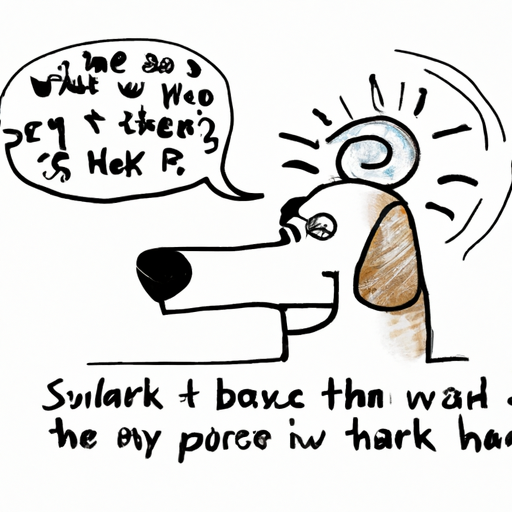Introduction
You’ve probably noticed your furry friend shaking their head from time to time. It seems like a simple, harmless action, but sometimes it can be more than just an amusing habit. As a caregiver for your pet, it’s important to understand why dogs shake their heads, and when it might be cause for concern.
Reasons for Head Shaking
1. Irritation
Often, dogs shake their heads simply because something is irritating them. This could be as simple as a fly buzzing around their ears or something more serious like an infection or inflammation.
- Ear Infections: Dogs with long, floppy ears are particularly prone to ear infections which can cause discomfort and lead to head shaking.
- Foreign Bodies: Sometimes, dogs can get small objects, like grass seeds, stuck in their ears which can cause irritation and prompt them to shake their heads.
- Allergies: Just like humans, dogs can also suffer from allergies. These can cause itching and inflammation in their ears, leading to head shaking.
2. Pain
If your dog is shaking their head frequently and seems to be in discomfort, it could be a sign of pain.
- Ear Hematoma: This is a condition where blood vessels in the dog’s ear flap rupture, leading to swelling and pain.
- Dental Issues: Problems with teeth or gums can sometimes cause dogs to shake their heads.
3. Behavioral Reasons
Sometimes, dogs may shake their heads as part of their behavioral patterns.
- Communication: Dogs often use head shaking as a way to signal that they’re uncomfortable or anxious.
- Drying Off: After a bath or a swim, dogs will shake their heads (and bodies) to dry off.
Prevention and Action
Knowing why dogs shake their heads is only half the battle, the other half is knowing what to do about it. As a caring pet parent, you can take several preventative measures and actions:
- Regular Check-ups: Regular veterinary check-ups can help catch any potential issues early.
- Clean Ears: Regularly cleaning your dog’s ears can help prevent infections.
- Healthy Diet: A balanced, nutritious diet can help prevent health issues, including those that can lead to head shaking.
| Prevention/Action | Benefits |
|---|---|
| Regular Check-ups | Early detection of potential issues |
| Clean Ears | Prevention of ear infections |
| Healthy Diet | Overall health improvement |
FAQs
Q: How often is normal for a dog to shake its head?
A: Occasional head shaking is normal, especially if your dog has just come in from outside or has taken a bath. If it’s happening frequently throughout the day, it might be a sign of a problem.
Q: What should I do if my dog won’t stop shaking his head?
A: If your dog won’t stop shaking his head, it’s best to consult with a veterinarian. They can examine your pet and determine if there’s an underlying issue that needs to be addressed.
Q: Can I prevent my dog from shaking his head too much?
A: Yes, regular vet check-ups and keeping your dog’s ears clean can help to prevent excessive head shaking.
Conclusion
In conclusion, dogs shake their heads for a variety of reasons, some harmless and some more serious. By understanding these reasons and taking preventative measures, you can help ensure your furry friend stays healthy and happy.



